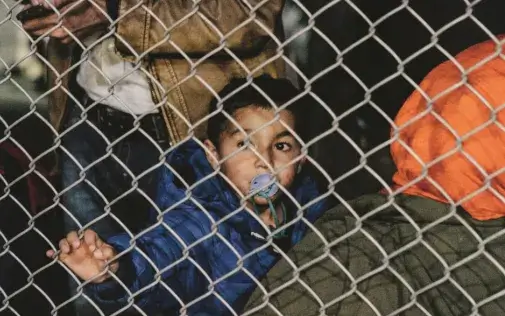
These people lack access to safe sanitation and find it much more difficult to practice protection measures like the simple task of cleaning their hands frequently.
With the outbreak of Coronavirus in Europe, and many people having to stay at h0me, some groups of people face additional barriers to protect themselves adequately from COVID-19. People living in poverty or the homeless, for whom it is much more difficult to gain access to preventive measures or to individual confinement as advised by authorities.
And of course, this also affects asylum seekers and, especially, the refugees and migrants piling up in Greece, at camps on islands such as Lesvos, Chios or Samos. These people lack access to safe sanitation, for instance, and find it much more difficult to practice protection measures like the simple task of cleaning their hands frequently; and this means they are more vulnerable to the spread of the disease.
We are referring to more than 37,000 people who are in facilities with an official capacity for 6,000, meaning the figures are six times more. As a consequence of the overcrowding, people are in close contact and this is just the opposite of the main measure to avoid the virus from spreading: social distancing.
This people are already in a vulnerable situation, much more prone to contracting other diseases due to the poor health conditions. Skin infections are common in the camps where there is little to no sanitation. To stay warm, many use makeshift heaters that pose a serious risk to health, including respiratory problems. And this is of great concern also because people with previous respiratory and pulmonary diseases are the ones at greater risk if they happen to become infected with COVID-19.
At refugee camps, for a long time there have been teams of volunteer doctors and NGOs operating, and the public services of the islands have been facing many problems to mitigate the needs of their patients. Cutbacks to healthcare in Greece due to the financial crash in 2008 have also played a key role. All this leads to the fear that, in days to come, without substantial changes to the measures put in place in camps to respond to COVID-19, the few services available and the small island hospitals in Greece may be placed under a lot of stress and may even collapse.
Bearing all of these risks in mind, the Greek Government and the EU must urgently put measures in place to protect the people living in these camps to reduce their exposure to risks and must develop plans to mitigate such risks. It is vital to ensure rapid access to treatment when necessary; it is also necessary to urgently increase transfers from the islands to adequate facilities in continental Greece. Whenever possible and wherever there are alternative accommodation options, Greece should free asylum-seekers from migratory detention and move them to adequate shelter.
European authorities cannot resort to the discourse of fear to justify discriminatory policies that only demonize people in search for security and international protection. Despite the serious situation, governments cannot suddenly suspend their duties in accordance with international law.


Add new comment